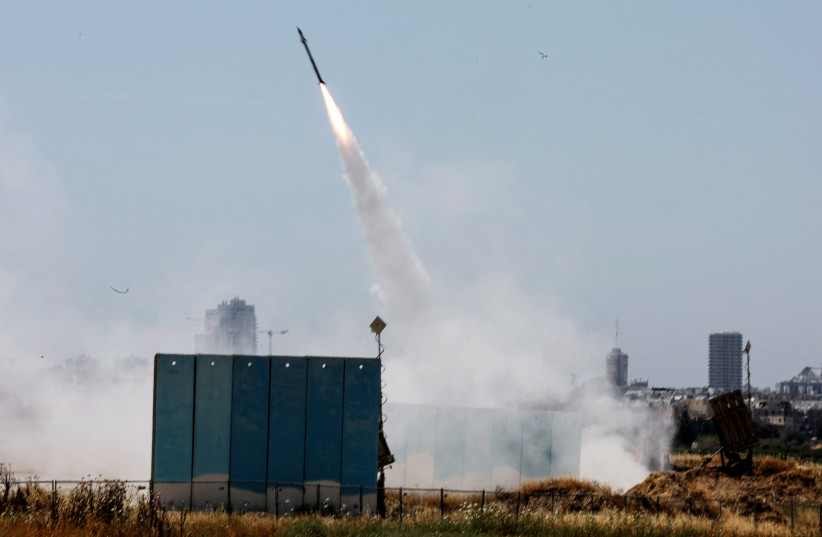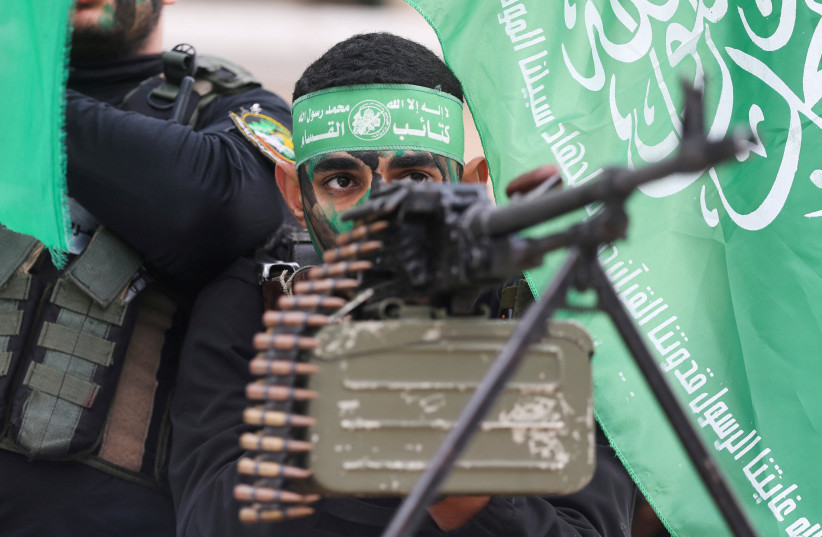By Wednesday night, around 300 rockets had been fired from Gaza to Israel in a matter of hours on Wednesday, coming only a week after over 100 rockets were fired at Israel over May 2-3.
In addition, over the course of Wednesday, two rockets were fired from Gaza at Tel Aviv and others were fired against the critical Gush Dan region – in contrast to the “usual” practice of firing “only” on Israel’s Gaza envelope towns.
All of this could suggest the beginnings of a much larger conflict, such as what happened in 2014 or May 2021. If so, why did the talk by early Wednesday evening switch to a likely ceasefire for 9 p.m.?
Where did talks of a ceasefire come from?
There have been at least two major categories of signals since this all started on Tuesday that the conflict wouldn’t be huge, but rather more of a hot and quick one – like the one in August 2022. Both types are about what did not happen, since that is often as important as what does.
First, the lapse of time for rocket-firing; second, the ones who didn’t participate.

Palestinian Islamic Jihad did not fire a single rocket at Israel all day Tuesday, despite the IDF killing three of its top leaders early in the morning. In fact, the terror group did not fire rockets against Israel at all until early Wednesday afternoon. This was a stunning extended time lapse showing that Islamic Jihad was not ready for a long conflict.
Why didn’t they shoot until Wednesday – and why might they want a quick end to the conflict now?
It could be because having lost a few top leaders, they are not yet sure who is now in charge. Or, it could be that the new leaders are afraid they will be killed next if there is a long conflict.
Or perhaps it is the absence of Hamas.
This week, last week and last August, Hamas issued numerous statements that it was involved and supported Islamic Jihad, but Israeli intelligence said that this was a public relations move to cover up the fact that the true rulers of Gaza stayed out of the conflict.
According to IDF intelligence, Hamas has not been a major factor, even yesterday with 300 rockets fired, though they may have participated symbolically.
The second category of what didn’t happen has to do with volume: Three hundred rockets in a few hours is a lot. By press time, that number might have gone up by at least several dozen more.
Yet in longer conflicts, Israel faced over 4,000 – meaning what we have seen so far has been very limited compared to some past rounds. Although two rockets toward Tel Aviv is a major escalation, over 160 rockets were fired at Tel Aviv in 2021 – including about 130 rockets in a single day.
There is not just a much smaller number of rockets this round. Any rocket fired at Tel Aviv is part of Hamas’s or Islamic Jihad’s much more limited number of long-range rockets. Using up such rockets which are not easily replaced is a strategic decision for the terror groups.
This means that in 2021, Hamas and Islamic Jihad were strategically committed to using up large amounts of their “best shots” against Israel. The same simply cannot be said for this round of fighting.
Additionally, some of this goes back to how it all started.

If, in 2014, Gaza was in a deep economic squeeze – and if, in 2021, the Strip’s rulers wanted to identify their cause with Jerusalem for broader global propaganda purposes – neither of those conditions are present now.
Gaza is not doing well economically, but it is also not doing much worse lately than in recent months or years. There has even been a period where more Gazan workers were allowed into Israel.
Jerusalem has also not been part of this round of fighting (though it was for the very short round of rockets around Passover). In some ways, this round came from the Israeli mistake of letting a top Islamic Jihad official in prison die while on hunger strike.
Islamic Jihad felt it needed to respond to defend its honor, while Israel felt it needed to restore deterrence or also defend its honor, and one thing has led to another – but neither side was even close to wanting a long battle.
Gaza is still licking its wounds from May 2021 and August 2022, and the current coalition has its hands full with crises over the judicial overhaul and food and gas prices.
In short, both sides are likely reading the signs of restraint that each has shown in certain ways (Israel has barely touched Hamas) and trying to find a quick way to end this unwanted accident and distraction of a fight.
